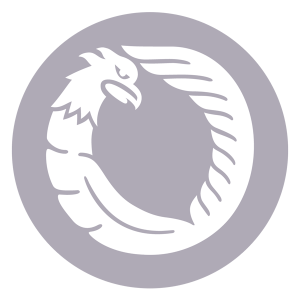It’s Winnie-the-Pooh day! Celebrated every year on 18th January — the birthday of author A. A. Milne — it’s the perfect excuse for family-friendly fun in the great outdoors: teddy bears’ picnics, den-building, treasure hunts, and (of course) Poohsticks!
Here are 19 names inspired by the wonderful world of Winnie-the-Pooh.
Aker: This striking, Nordic-looking name is actually taken from Christopher Robin’s childish corruption of the word acre in his charming map of the “100 Aker Wood”, which was used for the endpapers of the first edition of Winnie-the-Pooh, published in 1926.
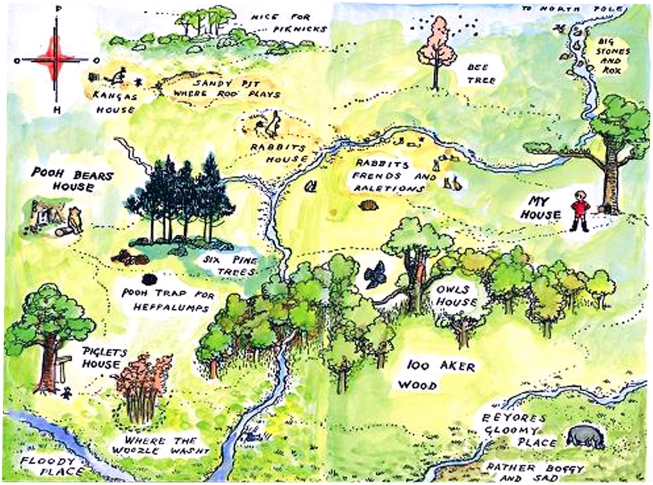
Aker is found predominantly as a surname, especially in Britain, Scandinavia and Turkey. Together with variant forms like Acker, Akker and Åker, it means “field” — which is also where the word Acre comes from. The name Aker also belongs to an Ancient Egyptian earth god.
Ash: The Hundred Acre Wood, where Pooh and his friends have their adventures, is modelled on the real-life Five Hundred Acre Wood — part of Ashdown Forest in East Sussex, near to the Milne family home. Illustrator E. H. Shepard would come and stay with the Milnes to take inspiration for the setting of the stories, and various locations around the area are now tourist attractions, such as the North Pole (as discovered by Christopher Robin) and the very first Poohsticks bridge.
Bee: This sweet nature name features prominently in the Winnie-the-Pooh stories, as the perpetually peckish bear tries everything to get his hands on his favourite snack. Bee could make an unconventional nickname for Elizabeth, Phoebe, Beatrice/Beatrix (in fact, any B- name would work)… or maybe even Deborah, which means “bee”.
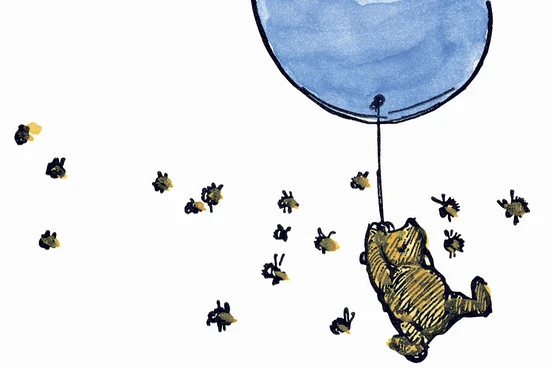
“It’s like this,” Pooh said. “When you go after honey with a balloon, the great thing is not to let the bees know you’re coming. Now, if you have a green balloon, they might think you were only part of the tree, and not notice you, and if you have a blue balloon, they might think you were only part of the sky, and not notice you, and the question is: Which is most likely?”
“Wouldn’t they notice YOU underneath the balloon?” Christopher Robin asked.
“They might or they might not,” said Winnie-the- Pooh. “You never can tell with bees.”
Daphne: The real Christopher Robin is author A. A. Milne’s son, who was six years old when the first Winnie-the-Pooh book was published. His mother was the daughter of a wealthy businessman: Dorothy de Sélincourt, known as Daphne to her friends. It’s another nature name, but a subtle one: Daphne is a minor figure in Greek mythology — a nymph transformed into a laurel tree to escape the attentions of Apollo. The name means “laurel”.
Edward: Winnie-the-Pooh’s name and character were inspired by the adventures of Christopher Robin Milne and his real-life teddy bear, originally called Edward Bear. The boy renamed his cuddly companion after visiting a black bear cub called Winnie at London Zoo (more on her name later). Pooh, meanwhile, was his nickname for a local swan, and “a very fine name for a swan, because if you call him and he doesn’t come (which is a thing swans are good at), then you can pretend that you were just saying ‘Pooh!’ to show him how little you wanted him.”
Ernest: The iconic illustrations for Winnie-the-Pooh — or “decorations”, as they are described in the books — are by Ernest Howard Shepard, who also illustrated various other works by Milne, as well as Kenneth Grahame’s children’s classic The Wind in the Willows. Shepard and Milne both worked for the satirical magazine Punch from the early 1900s through to the 20s (when their hugely successful lifelong literary collaboration began) and beyond — as cartoonist and contributor/editor, respectively.
Galleon: At the end of The House at Pooh Corner, Christopher Robin takes Pooh to an “enchanted place” called Galleon‘s Lap, based on the real Gill‘s Lap or Leap in Ashdown Forest: a small hill crowned with pine trees, rising above the forest.
Being enchanted, its floor was not like the floor of the Forest, gorse and bracken and heather, but close-set grass, quiet and smooth and green. It was the only place in the Forest where you could sit down carelessly, without getting up again almost at once and looking for somewhere else. Sitting there they could see the whole world spread out until it reached the sky, and whatever there was all the world over was with them in Galleons Lap.
… But wherever they go, and whatever happens to them on the way, in that enchanted place on the top of the Forest, a little boy and his Bear will always be playing.
Galleon could make for an adventurous twist on fashionable choices like Julian and Gideon. The word refers first and foremost to a large warship or cargo vessel, of the kind used in Europe from the 16th-19th centuries (and a popular feature of pirate tales). And it’s since been given a new lease of life by Harry Potter author J. K. Rowling, who used the name for the most valuable wizarding coin: the gold galleon.
Graham: This solid Scottish surname, deriving from the English place name Grantham “gravelly homestead”, belonged to E. H. Shepard’s son. Graham Shepard’s childhood teddy bear, Growler, was the model for the “tubby little cubby” who appeared in his father’s illustrations, since the real Pooh Bear was too angular. Graham Shepard, who would later became an illustrator himself, sadly died in 1943 at the age of just 36, when his ship was sunk by a German submarine.
Honey: Honey (or should that be “Hunny”?) is a rumbly-tumbly bear’s favourite food. It’s a super-sweet term of endearment which is surprisingly well-used in the UK — given to 185 baby girls in England & Wales last year. Several British celebrities have daughters by the name, including Jamie Oliver, Fearne Cotton, and Kate Winslet.
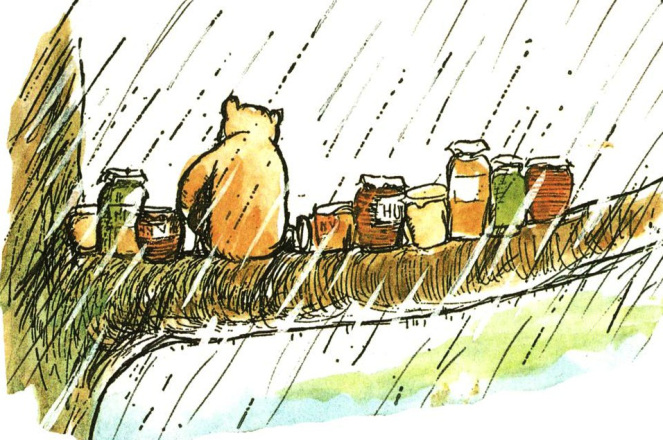
“If there’s a buzzing-noise, somebody’s making a buzzing-noise, and the only reason for making a buzzing-noise that I know of is because you’re a bee.”
Then he thought another long time, and said: “And the only reason for being a bee that I know of is making honey.”
And then he got up, and said: “And the only reason for making honey is so I can eat it.” So he began to climb the tree.
Kanga: Commonly heard in Australia as an informal abbreviation for kangaroo, the first citation in the OED for kanga is attributed to A. A. Milne, who wrote in Winnie-the-Pooh that “a Kanga was Generally Regarded as One of the Fiercer Animals” (though, of course, she’s anything but). Kanga is also a given name of Native American origin, meaning “raven”.
Milne: An occupational surname meaning “dweller or worker at the mill”, Milne could make for a handsome, undiscovered choice — a preppy alternative to popular Miles. Alan Alexander Milne was a prolific playwright, poet and satirist as well as a children’s author, though the success of Winnie-the-Pooh has overshadowed his other work. He was also a captain in the British Army, serving in both World Wars.
Pom: This adorable little nickname, which is also borne by a character from the Babar books by Jean de Brunhoff, features in Pooh’s catchy little “Tiddely Pom” song. Though spelt differently, it’s pronounced just like the French word pomme “apple”, and would make a cute short form for Pomeline, Pomona, Paloma… perhaps even William at a stretch — on the model of the popular Dutch diminutive Pim.
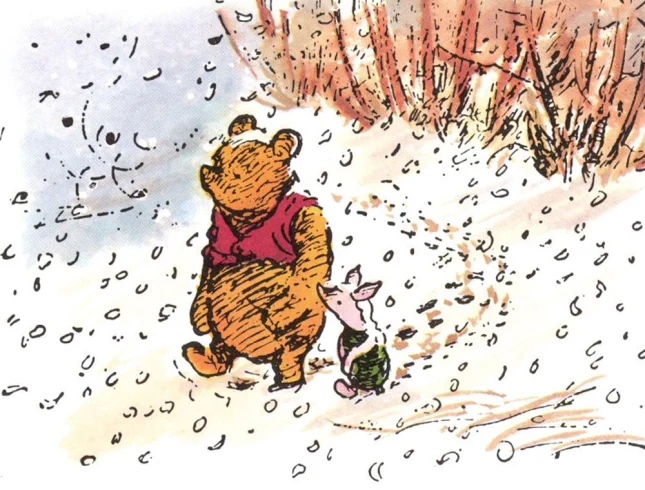
The more it snows (Tiddely pom),
The more it goes (Tiddely pom),
The more it goes (Tiddely pom)
On snowing.And nobody knows (Tiddely pom),
How cold my toes (Tiddely pom),
How cold my toes (Tiddely pom),
Are growing.
Robin: A chirpy little nature name which actually started out as a medieval diminutive of Robert “bright fame”, Robin and Robyn are both flying high on the British charts at the moment — ranking at #198 for boys and #86 for girls, respectively (though both spellings are unisex). The robin was recently voted the nation’s favourite bird, and would make a fitting choice for this time of year.
Christopher Robin Milne was actually going to be called Billy originally, but his parents changed their minds at the last minute and chose one name each (though he was still called “Billy Moon” within the family). On their decision to give their son a double name, A. A. Milne once said: “I had decided on two initials rather than one or none because I wanted him to play cricket for England, like W.G. Grace and C.B Fry … A father has to think of these things.“
Rue: Bouncy little Roo‘s name is perhaps more wearable in one of its soundalike spellings: sweet, melancholy nature name Rue “regret”, which has been boosted by its appearance in The Hunger Games; or fiery French Roux “red-head”, which is borne by a mysterious character in Joanne Harris’ novel Chocolat. It could also make for a great unisex nickname option for Ru- names like Rupert, Reuben, Ruby or Rumer.
Sander: A form of Alexander particularly popular in Dutch-speaking regions of Europe, Sander is a soft-yet-strong choice with an on-trend sound, which is virtually unused in the UK and US.
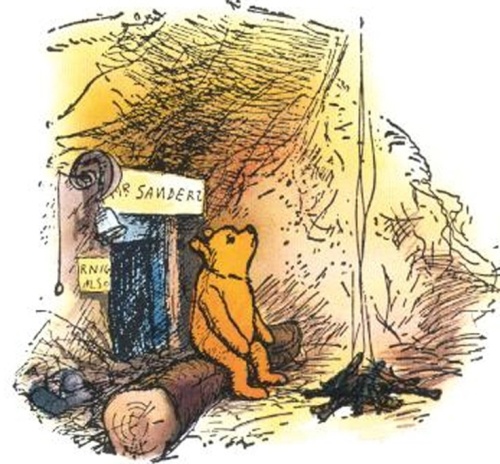
Once upon a time, a very long time ago now, about last Friday, Winnie-the-Pooh lived in a forest all by himself under the name of Sanders.
“What does ‘under the name’ mean?” asked Christopher Robin. “It means he had the name over the door in gold letters, and lived under it.”
Pooh’s plaque may be an inside joke: the Mr Sanders in question is thought to be Frank Sanders, a friend of E. H. Shepard and owner of a London printing works which had printed some of Milne’s stories. Hungarian variant Sándor also has a Pooh connection: it’s the surname of Lénárd Sándor (Alexander Lenard), the books’ Latin translator.
Shepard: Although he apparently came to resent “that silly old bear” for overshadowing his other work (he was a leading cartoonist at Punch magazine for three decades, and a decorated major in the British Army), E. H. Shepard was certainly instrumental in Winnie-the-Pooh‘s success. The way in which author and illustrator collaborated to weave text and image together was highly innovative at the time, and a big risk due to the added expense involved. But it paid off, and Milne arranged for Shepard to receive a share of his royalties, as well as writing this dedication in his copy of the book:
When I am gone,
Let Shepard decorate my tomb,
And put (if there is room)
Two pictures on the stone:
Piglet from page a hundred and eleven,
And Pooh and Piglet walking (157)…
And Peter, thinking that they are my own,
Will welcome me to Heaven.
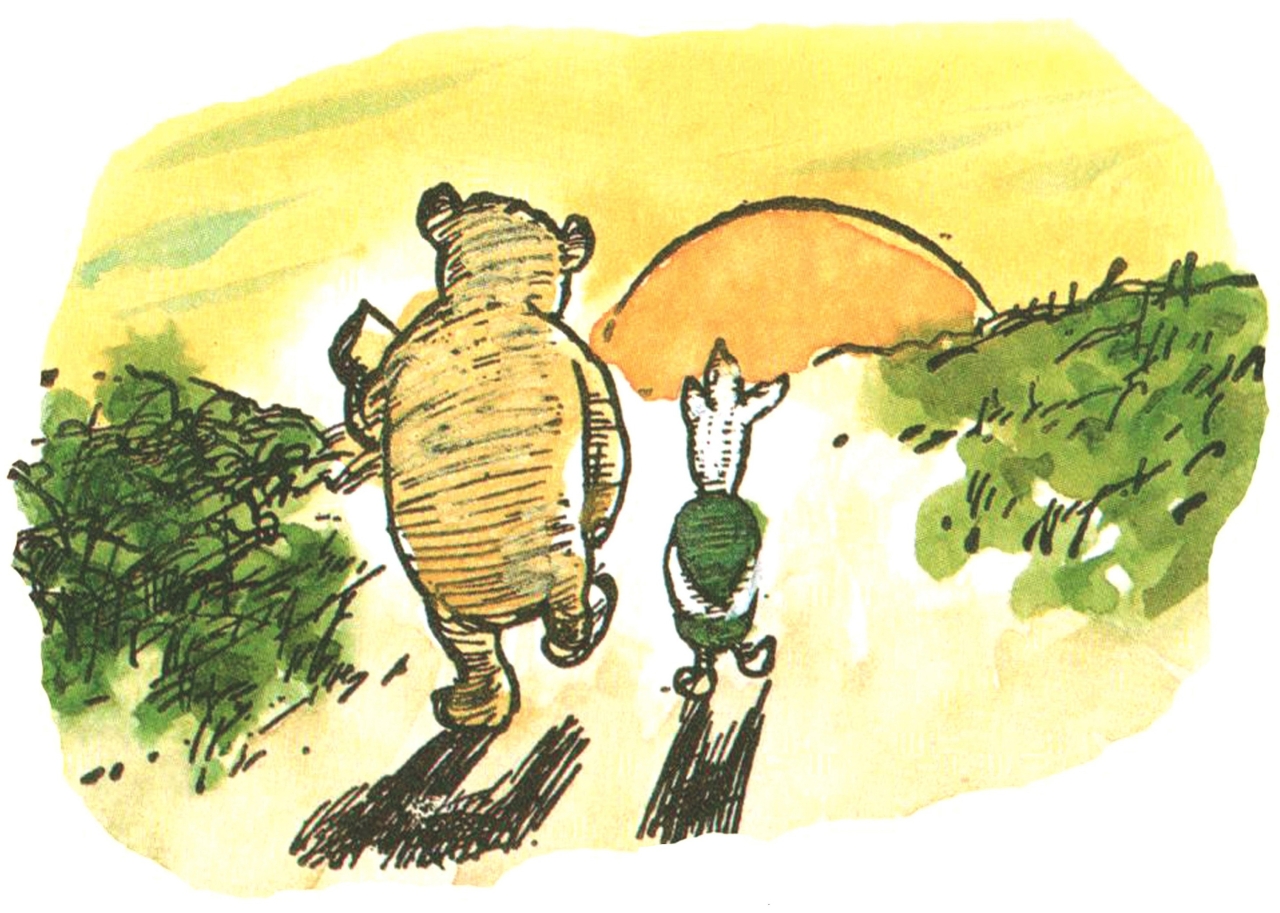
Sixten: Now We Are Six is a classic children’s poetry collection written by A. A. Milne and illustrated by E. H. Shepard, first published in 1927. Eleven of the poems are accompanied by illustrations featuring the familiar figure of Winnie-the-Pooh. Though not strictly a numerical name (it actually derives from Old Norse Sigsteinn “victory stone”), Sixten certainly sounds like it to the English ear. Its spiky x and on-trend ending give it a shot of cool, and it currently ranks at #39 in Sweden.
When I was One,
I had just begun.
When I was Two,
I was nearly new.When I was Three
I was hardly me.
When I was Four,
I was not much more.
When I was Five, I was just alive.
But now I am Six, I’m as clever as clever,
So I think I’ll be six now for ever and ever.
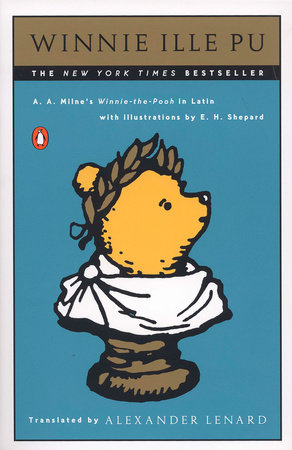
Tigris: The Winnie-the-Pooh stories have been translated into over 40 languages, including (as mentioned above) Latin. Winnie ille Pu, initially self-published in 1958, is the only book in Latin ever to make it onto the New York Times bestseller list, where it remained for 20 weeks. Tigris is the Latin word for “tiger” and the name given to Tigger in Lenard’s translation. It’s also the name of a great river in southwestern Asia.
Winnie: No roundup of names from the wonderful world of Pooh would be complete without this sweet, sassy vintage nickname. Traditionally short for Winifred “blessed peacemaking”, Winnie has been outside of the US top 1000 since the mid-1950s — though it’s experienced a significant uptick in use since 2013, when Jimmy Fallon and Nancy Juvonen used it for their first-born daughter. They chose the name as a nod to Lake Winnipesaukee, where they got engaged. And Winnie the black bear cub (the inspiration behind Edward Bear’s new name) was Winnipeg in full, after the home town of the Canadian soldier who rescued her from poachers and donated her to London Zoo.
If neither Winifred nor Winnipeg are quite doing it for you, Abby at Appellation Mountain has a wonderful list of novel ways to Winnie.
What’s your favourite Winnie-the-Pooh inspired name? Are there any you’d add to the list?
